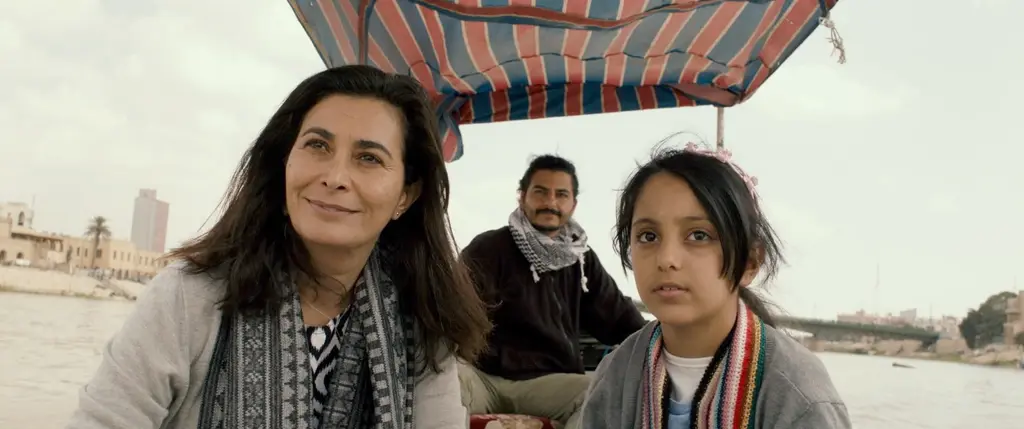I worked in the government for years – now I’m an anarchist
- Text by Carne Ross

When I started out in my career as a diplomat I never imagined that I would one day call myself an anarchist. I used to believe in what might be called the “western model” – representative democracy, where the many elect the few. But it was my 15 years of experience as a government employee that eventually led me to have a radically different view. I became a diplomat in 1989.
For a while, I wrote speeches for the Foreign Secretary where he would tell the world what Britain thought about places like Africa or the Middle East, or climate change. As my fingers tapped out what would become his words, I began to believe them. I started to talk about how “we” – Britain – saw the world, not what I really thought about it. My crisis of faith came with the invasion of Iraq in 2003. Until shortly before, I had been Britain’s expert on Iraq’s WMD at the United Nations Security Council. I knew the issue well. As I heard Blair and Bush explain the war to their ignorant populations, I realised that they were lying. I knew this because “we” had concluded many times that Iraq was not a threat. It might have had some WMD, but we knew nothing for certain. That had been our internal assessment for the four-and-a-half years I had worked on the issue.
 I began to see government as a kind of con-trick. It assured people that it had things under control, but it didn’t. Worse, I had seen it get permitted to do terrible things. I knew this, because I’d done them. The UK and US enforced economic sanctions on Iraq for 12 years after the 1991 war, devastating the Iraqi economy and causing undeniable suffering to the Iraqi people. I had defended this cruelty, executed in the name of “our” security, which governments claim is more important than children’s lives. I thought of myself and my colleagues as decent people but somehow the philosophy and culture of government encouraged us to do things that were very wrong. I feel deep shame to this day.
I began to see government as a kind of con-trick. It assured people that it had things under control, but it didn’t. Worse, I had seen it get permitted to do terrible things. I knew this, because I’d done them. The UK and US enforced economic sanctions on Iraq for 12 years after the 1991 war, devastating the Iraqi economy and causing undeniable suffering to the Iraqi people. I had defended this cruelty, executed in the name of “our” security, which governments claim is more important than children’s lives. I thought of myself and my colleagues as decent people but somehow the philosophy and culture of government encouraged us to do things that were very wrong. I feel deep shame to this day.
After I left, I searched for a system where people, not abstract ideas or institutions, are in control. I studied philosophy, history and the “new” economics that claimed that consumption is not the ultimate goal of humans; we are not rational; we are driven by other things. I learned that there is no way to measure the things that matter most. Words like meaning, community or love can barely begin to capture their true significance. I wanted a philosophy that put these values as the goal, where people not “the market” decided what was important. As I read, I realised that others had reached the same conclusion. To my surprise, I’d come to believe in anarchism.
Since leaving government, I’ve worked with groups and movements fighting for self-determination and freedom from repression around the world, in places like Kosovo, the Western Sahara or Syria. We in the West are imprisoned not by dictators but by ideas about democracy, economics and government that no longer work. Look at the evidence, from stagnant incomes to student debt, unaffordable housing or Grenfell Tower (if the residents had a say in how that building was managed, would the fire have happened?). The “system” isn’t working. In repetitive debates and facile slogans, politicians offer the implausible promise that only they can make things better, as long as we vote for them.
The existence of government sends a message that “the people” – us – cannot be trusted, and that order must be imposed from the top down. I now believe the very opposite; the current system is creating disorder, where the tiny few dominate the rest, and where the planet is in danger. Unless citizens themselves take control, society will be ripped apart. It is possible to have a society where things like meaning, community, and indeed love are at the heart, not afterthoughts in an economy and culture that pretends that wealth is the most important measure of success. Through sharing and taking part in government and business together as equals, we can reweave the tattered threads of society. This offers a deeper and more enduring order where we respect and work with one another on the things we most care about, a society we can be proud of. But this will not happen on its own. Only we can make it happen.
Carne Ross is the subject of the documentary Accidental Anarchist on BBC4 Storyville on 23 July. He is director of the non-profit diplomatic advisory group, Independent Diplomat. A frequent contributor to the press, a new edition of his first book, Independent Diplomat:Dispatches from an unaccountable elite will be published in August.
You might like

New documentary revisits the radical history of UK free rave culture
Free Party: A Folk History — Directed by Aaron Trinder, it features first-hand stories from key crews including DiY, Spiral Tribe, Bedlam and Circus Warp, with public streaming available from May 30.
Written by: Isaac Muk

A new documentary spotlights Ecuador’s women surfers fighting climate change
Ceibo — Co-directed by Maddie Meddings and Lucy Small, the film focuses on the work and story of Pacha Light, a wave rider who lived off-grid before reconnecting with her country’s activist heritage.
Written by: Hannah Bentley

Director Steve McQueen explores life under occupation
Steven McQueen provides a haunting examination of Amsterdam under Nazi occupation in contrast to its present in his documentary adapted from Bianca Stigter's book of the same name.

The everyday voices silenced in our coverage of the Middle East
Until women and young people are heard, we won’t break this cycle of destruction and dehumanisation, argues director Maysoon Pachachi.
Written by: Maysoon Pachachi

Suella Braverman has declared a war on rights that we must win
The Home Secretary's latest attack on the rule of law must be resisted writes lawyer Raj Chada.
Written by: Raj Chada

Stand Up Paddle Boarding
Screw It! — Miles Masterson vents his frustration as the stand up paddle boarding apocalypse sweeps his homebreak.
Written by: Miles Masterson